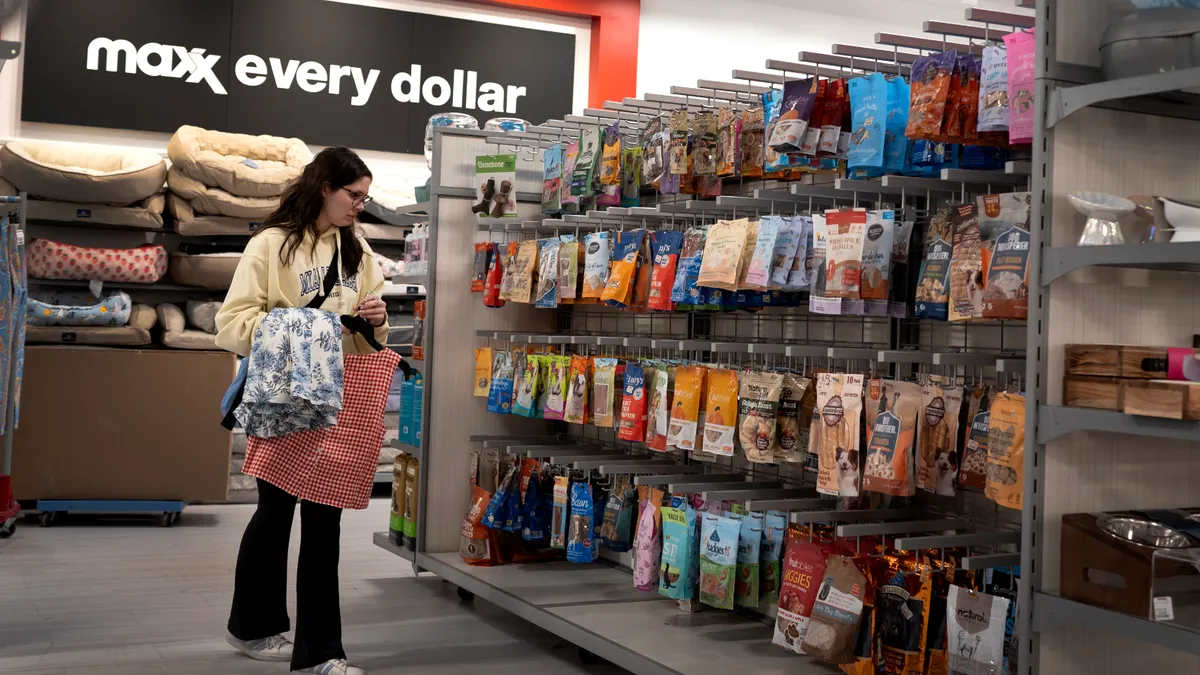UPDATE: November 4, 2021: A report on working conditions and operations at private equity-owned PetSmart got the attention of U.S. Sen. Elizabeth Warren, D-MA.
Warren sent a letter this week addressed to Raymond Svider, chairman of PetSmart sponsor BC Partners. In it, she expressed concern around the report's findings and asked Svider to provide information about staffing and pay, as well as disclosures that would be required under the recently reintroduced Stop Wall Street Looting Act, which targets private equity. Warren also asked that Svider account for steps to protect workers and pets at PetSmart.
Dive Brief:
- In a recent report, worker activist group United for Respect said PetSmart left employees unprotected against COVID-19 while understaffing in recent years has added risk to animals.
- The report cites a July 2020 letter signed by hundreds of employees to PetSmart's private equity owners, BC Partners, asking that they provide personal protective equipment, hazard pay and enforced social distancing protocols. A BC Partners spokesperson said in a statement that the retailer spent millions of dollars on personal protective equipment as well as $150 million in additional employee compensation.
- The report also alleges that understaffing and insufficient training have made it "difficult to properly handle customer traffic and provide professional petcare," while supply shortages and faulty equipment have hurt pet-care services.
Dive Insight:
PetSmart stands as the largest private equity buyout in retail history. BC Partners took over the company for $8.7 billion in 2015, a price tag funded mostly with debt. PetSmart issued $1.9 billion in bonds and took out a $4.3 billion loan to fund BC Partner's buyout, according to Debtwire data from 2018.
The company has struggled with its debt ever since, though the spinoff of Chewy eased its balance sheet, and the pet boom of the COVID-19 pandemic was a boon to the retailer's foot traffic.
Private equity's debt-fueled foray into retail has had a patchy record. Retail Dive has counted more than 30 retailers that have gone through private equity acquisitions that have filed for Chapter 11, and in most recent years, private equity-owned retailers made up the majority of the year's major bankruptcies. Many other private equity-owned retailers have undergone periods of financial distress and survived through out-of-court deals with lenders.
United for Respect's report draws a direct line from the company's private equity owners to its allegations of understaffing and poor COVID-19 protections, which came out of the group's interviews with PetSmart workers. The report alleges that PetSmart is "cutting corners on the staffing, training, supplies, and equipment needed to provide quality petcare" while "associates, customers, and pets ... pay the price for BC Partners' extractive ownership practices."
The report cites a journalistic investigation into an uptick in documented deaths of dogs in or that received PetSmart care services. PetSmart at the time said that "any assertion that there is a systemic problem is false and fabricated."
United for Respect also said that PetSmart furloughed and laid off employees even as its store traffic increased during 2020. "PetSmart associates who continued to work did so with fewer staff than before and without hazard pay," the report stated.
A spokesperson for BC Partners said in a statement that "the heart of PetSmart has always been its associates. We are incredibly grateful for the daily support and commitment of the company's 50,000 strong work force."
The BC Partners spokesperson said employees received additional compensation "in recognition of the dedication and service" during the pandemic. The company is also offering $100 to fully vaccinated associates to offset the costs, resources and time to get shots.
Also according to the report, PetSmart did not provide paid COVID-19 leave to employees, in contrast to other retailers who offered leave so that employees could care for sick family members and recover themselves if they transmitted the disease.
United for Respect said BC Partners must make changes to protect its employees and pets at the store, including a $15 minimum wage, fair scheduling, a safe working environment, employer health insurance for all employees, functioning equipment for pet care, worker representation on the company's board and severance.














